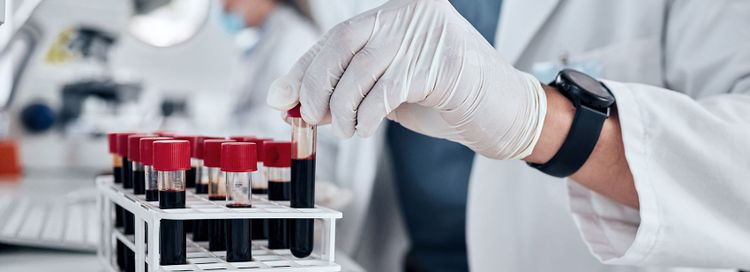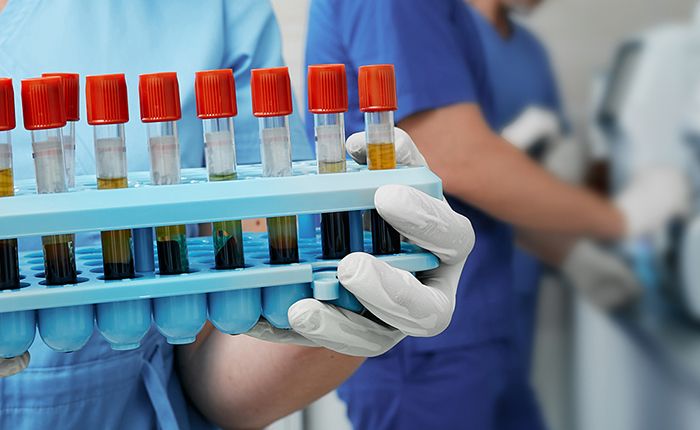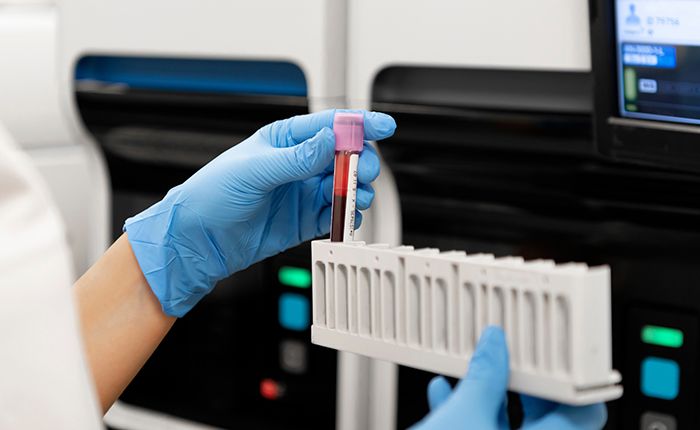June 5, 2024
The adoption of artificial intelligence (AI) and machine learning (ML) technologies is a hot topic currently, including in the context of clinical laboratories. Understanding AI technologies and their applications is essential for laboratories to improve efficiency and integrate into broader health ecosystems. Incorporating AI and ML into strategic planning can also unlock substantial advantages for clinical labs in today's evolving landscape.
However, for lab leaders and managers seeking to harness the potential of AI and ML, it’s imperative to understand how to effectively embrace these advancements to ensure successful implementation. This blog post will provide examples of practical applications of AI and ML in clinical labs and address the essential steps needed to prepare for and fully embrace AI investments.
Defining Artificial Intelligence and Machine Learning
Before diving into how labs can utilize AI and ML, it is important to define these two terms to level set and ensure mutual understanding.
Artificial intelligence (AI) is the science of making machines that can think like humans. It can do things that are considered "smart." AI technology can process large amounts of data in ways unlike humans. The goal for AI is to be able to do things such as recognize patterns, make decisions and judge like humans.
Machine learning (ML) is a branch of artificial intelligence and computer science that focuses on using data and algorithms for AI to imitate the way that humans learn, gradually improving accuracy.
Applications of AI and ML for Clinical Labs
There are a multitude of ways that clinical laboratories can implement artificial intelligence and machine learning into their operations. These applications fall into three primary categories.
Clinical Decision Support
Machine learning models can learn from health data to predict patient needs and suggest effective treatments. They can also analyze large datasets to identify gaps or cases where improper treatment may be occuring. For example, hc1’s PrecisionDx Advisor solution uses an enterprise-scale rules engine to surface unnecessary testing, such as duplicate or obsolete testing, to help laboratory stewardship teams target efforts to reduce test misutilization.
Operational Excellence
AI technology can help labs aim for excellence in laboratory operations. Repetitive tasks can be automated, reducing errors and freeing up staff to focus on more strategic activities. Large scale projects like mapping compendiums can be completely automated using ML. Developments like digital pathology can help pathologists turn tests around faster while enhancing precision and accuracy.
Resource Optimization
Labs can also leverage AI and ML to overcome resource limitations. Data-backed demand forecasting can help labs ensure staff and resources are optimized for expected volume. Taking that a step further, predictive staffing recommendations – like those provided by hc1 Workforce Optimization – can help ensure the right staff are in the right place at the right time.
Methodical Approach to Implementing AI and ML Technology
When implementing any new lab technology, it’s important to have the right foundations in place to effectively utilize and fully benefit from the solution. This includes systems, processes and data. This is especially important with AI and ML – without good data, any solution utilizing AI and ML will be completely ineffective.
The hc1 Laboratory Performance Maturity Model is a 5-step approach that helps lab leaders assess their current technological state and create a methodical plan to build up systems and processes to achieve optimal performance.
- Data Fundamentals & Infrastructure: Install data governance, processes, normalization and standards.
- Operations & Visibility: Systematize and automate lab performance analytics and customer-facing business operations.
- Data Driven Decisions: Data and analytics inform critical decision making. Lab leadership can innovate and drive data insights without IT dependency.
- Advanced Tech Capabilities: Lab leaders have advanced tools to optimize lab operations and have evidence-based data to influence system leadership to drive clinical best practices.
- Predict and Impact the Future: Lab leaders use technology to anticipate trends, issues and opportunities and proactively address future business and clinical conditions.
It is at this fifth level that laboratories are ready to truly see maximum impact from AI and ML technologies.
5 Steps to Implement the Right AI Formula
The digital revolution is not a dream of tomorrow – as we see, it is already well underway, and lab leaders and managers need to prepare their labs today. To set their labs up for long-term success and innovation, lab leaders should consider the following steps:
- Data: Set up the data lake and infrastructure needed to maximize the impact of AI and ML technologies.
- Resources: Address resource limitations to ensure there is budget and staff capacity available to invest in new technologies.
- Technology: Invest in infrastructure and technology to support lab digitalization and interconnection, including automation systems and data accessibility tools.
- Organization: Build readiness for change with visionary leadership. Prioritize training and upskilling of staff to manage and interpret data from digital technologies.
- Implementation: Ensure goal alignment across the organization. Establish success metrics to measure results. Continually focus on process improvement.
There are a multitude of ways labs can adopt AI and ML technologies today and derive immediate benefits in care delivery and operational efficiency. Lab leaders that leverage AI for competitive advantage, plan for long-term adoption and stay informed on advancements can position their labs for future success, enhance patient outcomes and reduce costs.
If you're interested in incorporating AI and ML into your lab but don't know where to start, reach out to hc1 and allow us to help you determine the right approach.
______________________________________
Mackin Bannon is the product marketing manager for hc1. Mackin held various roles covering nearly every marketing area before settling on product marketing as a focus and joining hc1 in 2022. During the workday, he enjoys bringing stories to life in clear and creative ways. In his free time, he enjoys following his favorite sports teams, collecting vinyl records and exploring Indianapolis.













